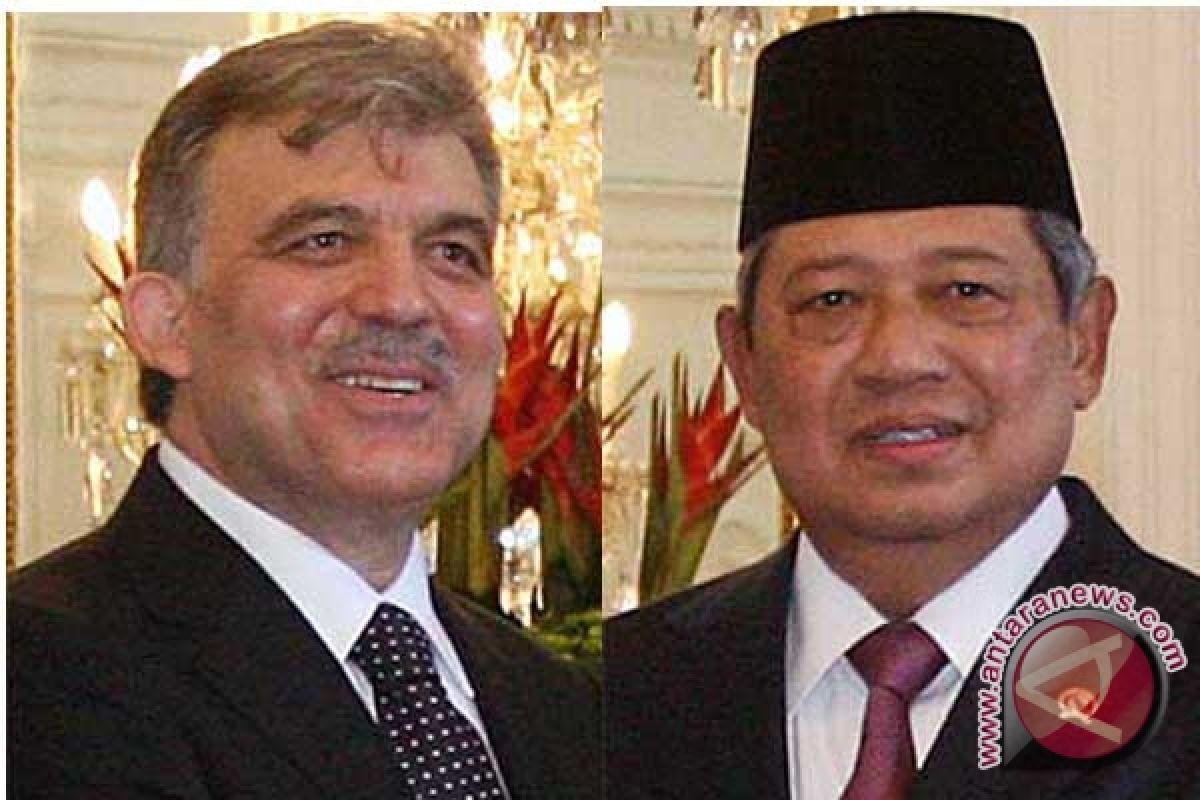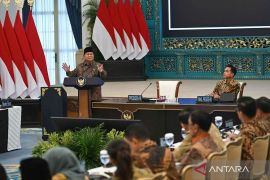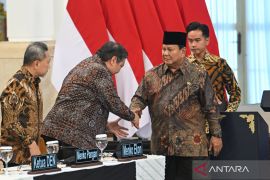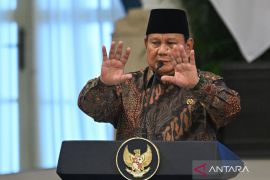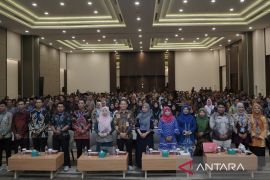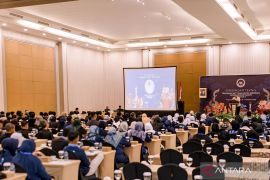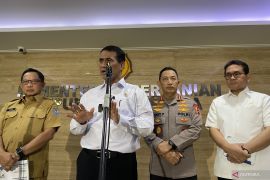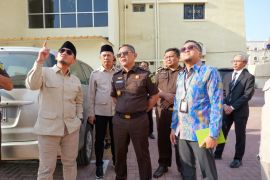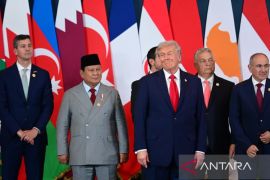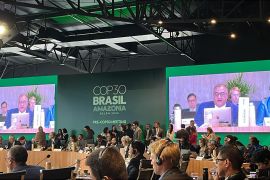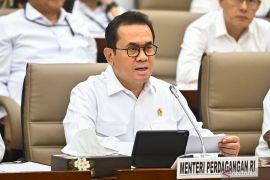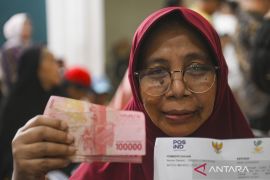President Gul`s visit was successful as it was marked by the signings of several agreements and MOUs, Indonesian Ambassador to Turkey Nahari Agustini said here Thursday.
Among the agreements and memorandums of understanding signed during the visit of Abdullah Gul were on the establishment of bilateral commission forum, visa exemption for diplomatic and official passport holders and cooperation in disaster management.
After holding a bilateral meeting, President Susilo Bambang Yudhoyono and President Gul also issued a joint statement on recent situation in Libya, and a joint declaration on enhanced comprehensive partnership between Indonesia and Turkey, according to Ambassador Nahari.
"Since the visit of President Yudhoyono to Turkey in June 2010 until the visit of President Abdullah Gul to Jakarta, there have been many progresses especially in the bilateral trade, investment, cooperation in education, and exchanges of visits between the two countries` official," the ambassador said.
Gul who was accompanied by First Lady Hayrunissa visited Jakarta, April 4-6, 2011, to reciprocate President Yudhoyono`s working visit to Ankara and Istanbul on June 28-30, 2010.
Yudhoyono`s visit was the first Indonesian president`s visit to Turkey in the last 25 years, while Gul`s visit was the first Turkish president`s visit to Jakarta after 16 years ago. For both nations, the two leaders` visits were historic ones.
Ambassador Nahari said the fact that President Abdullah Gul reciprocated President Yudhoyono`s visit to Turkey in less than a year demonstrated Turkey`s big attention and appreciation toward Indonesia.
"Since the visit of President Susilo Bambang Yudhoyono to Turkey in June 2010 up to the visit of Turkish President Abdullah Gul to Indonesia this week, there have been progresses in the bilateral trade value," Indonesian Ambassador to Turkey Nahari Agustini told ANTARA in Jakarta, Thursday.
The bilateral trade value between Indonesia and Turkey increased to 1.7 billion US dollars in 2010, up from 1.2 billion US dollars in 2009.
Of the total 1.7 billion US dollars, 1.4 billion US dollars were in favor of Indonesia, she said.
Indonesia`s exports to Turkey include teakwood and rattan furniture, wood products, shoes, oilplam, coconut, plastic and plastic products, and paper.
Its main imports from Turkey are among other things tobacco, marble, heavy equipment and spare parts, flour, carpets, leather, textiles, and wool.
Indonesia and Turkey have set a target of bilateral trade value at around five billion US dollars by 2014, and up to 10 billion US dollars in the future, including by boosting investment cooperation.
At a business forum organized by KADIN (Indonesian Chamber of Commerce and Industry) and the trade ministry in Jakarta, Wednesday (April 6), the South Sumatran Governor and Hitay Investment Holdings of Turkey signed an initial agreement on one-billion-US dollar-worth investment in the geothermal field.
President Yudhoyono offered Indonesia`s economic zone development projects to Turkish businessmen at the forum.
For the purpose he said around US$300 billion would be needed while state-owned and private companies in the country had committed only around US$200 billion so far.
The head of state also called on Indonesian businessmen to invest in Turkey as the gate to European Union markets.
President Abdullah Gul meanwhile said that the potentials for cooperation between Indonesia and Turkey had not yet been developed fully, as common members of the Group of 20.
Turkey`s investment in Indonesia has reached US$70 million while Indonesian investment in Turkey is only US$600,000.
The first Indonesian lady ambassador to Turkey explained that both governments believed that the bilateral cooperation in the political and cultural fields have been very sound, but there are still huge potentials that need to be tapped further in the fields of economic, trade and investment.
Abdullah Gul revealed said at a joint press conference with President Susilo Bambang Yudhoyono in Jakarta Tuesday (April 5) that Indonesia and Turkey in the near future hoped to sign an agreement on free trade within the framework of comprehensive and strategic cooperation.
Both Gul and Yudhoyono were optimistic that the bilateral trade value target could be achieved given the two countries` huge economic potential.
Gul, whose entourage included Foreign Affairs Minister Mehmet Aydin, Agriculture and Rural Affairs Minister Mehdi Ekker and several legislators, believed that Indonesia is an attractive country for investment thanks to its rich natural resources, dynamic population mostly in the productive age group, and democratic as well pluralistic policies.
Optimistic view was voiced by Indonesian Trade Minister Mari Elka Pangestu who believed the target could be reached with the support of investments.
To facilitate the business activities between the two countries` businessmen, Indonesia plans to open a consulate general in Istanbul, Turkish main trade city, this year, according to Ambassador Nahari.
In the regional cooperation field, President Gul expressed his country`s interest in becoming a dialog partner of ASEAN.
"We are very interested in working closely with ASEAN because the organization represents a huge population undergoing positive economic growth," the Turkish leader said. As the current ASEAN chairman, President Yudhoyono positively responded to Turkey`s intention.
In the last day of his visit to Indonesia, Wednesday (April 6), President Abdullah Gul received an honorary doctorate in political science from prestigious State University of Indonesia (UI).
"President Abdullah is one of influential politicians in his country and in the world," UI rector Gumilar Rusliwa Somanti said in his speech at the presentation of the degree, attended by education minister M Nuh, and cabinet secretary Dipo Alam.
Dipo Alam, former Secretary General of the Istanbul-based D8 (2007-2009), viewed the respective state visits of Gul and Yudhoyono of Muslim majority countries hold a special meaning for the Muslim world, as the two nations are known for fostering a national way of life that promotes democratic values while also retaining Islam values.
"Both Indonesia and Turkey having successfully implemented the democratization process have also boasted significant economic progress despite the global shocks of an economic downturn worldwide," Dipo said commenting on the visit of President Gul in Indonesia.
(T.F001/HAJM/A014)
Reporter: by Fardah
Editor: Priyambodo RH
Copyright © ANTARA 2011
